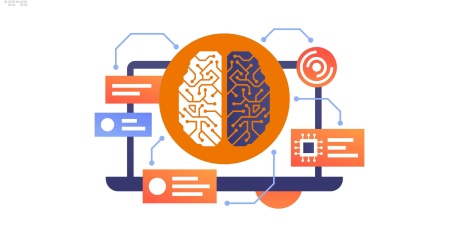Junior Developers: Facing the Hard Truths You Don’t Want To Hear
Table of Contents
Introduction
This guide comes in to break the ice and expose the cold truths that junior developers sometimes have but may not want to listen to. From impostor syndrome to the power of self-development we will examine the limitations that come with a novice in the fast fields of software development.
As a junior developer, one can get the experience of saying hello to software development yet the feeling of excitement and fear would surely be felt. Now, after all of your years of practice, book-reading, and coding challenges, you are prepared to apply for an ideal IT position. But you’re now here and you’re just understanding that industry has some harsh realities that you weren’t anticipating before.
Chapter 1 – Junior Developers: Imposter Syndrome – The Silent Struggle
Imposter syndrome is a pervasive phenomenon that affects individuals across various professions, but it’s particularly prevalent in the field of software development. As a junior developer, you may find yourself grappling with feelings of inadequacy and self-doubt, despite evidence of your competence and achievements.
1.1 Understanding Imposter Syndrome
Imposter syndrome is characterized by a persistent fear of being exposed as a fraud, despite external evidence of success. You may attribute your accomplishments to luck or external factors rather than your own abilities, leading to a constant sense of insecurity and anxiety.
1.2 Common Triggers for Imposter Syndrome
Several factors can contribute to imposter syndrome among junior developers. These may include:
- Comparing Yourself to Others: In the competitive world of software development, it’s easy to fall into the trap of comparing yourself to more experienced developers. Seeing others’ achievements can trigger feelings of inadequacy and self-doubt.
- High Expectations: As a junior developer, you may feel pressure to perform at a high level and meet unrealistic expectations. This pressure can exacerbate feelings of imposter syndrome, as you fear that you won’t be able to live up to the standards set by your peers and supervisors.
- Lack of Feedback: Without regular feedback and validation, you may struggle to recognize your own accomplishments and abilities. This lack of validation can reinforce feelings of imposter syndrome, as you begin to doubt whether you’re truly capable of succeeding in your role.
1.3 Overcoming Imposter Syndrome
While overcoming imposter syndrome isn’t easy, it’s essential for your personal and professional growth as a junior developer. Here are some strategies to help you combat imposter syndrome:
- Recognize Your Achievements: Take time to acknowledge your accomplishments and celebrate your successes, no matter how small they may seem. Keep a journal of your achievements and revisit it whenever you’re feeling self-doubt.
- Reframe Your Mindset: Instead of focusing on your perceived shortcomings, reframe your thoughts to emphasize your strengths and abilities. Remind yourself that it’s normal to make mistakes and that failure is an essential part of the learning process.
- Seek Support: Don’t be afraid to reach out to mentors, colleagues, or friends for support and encouragement. Talking openly about your feelings of imposter syndrome can help you realize that you’re not alone in your struggles.
Chapter 2 – Junior Developers: The Reality of Continuous Learning
The good news is as a junior developer; you learn to deal with the boredom of no promotion and move to an update of new technologies. Technological innovations are taking place faster than ever before, so what you have studied today may lead to something that is no longer important tomorrow. Hence, having the learning mindset is a necessary condition for remaining relevant and competitive in the sector.
2.1 The Pace of Technological Change
The IT sector is known for its ongoing innovation and disruption. Every week, new tools, frameworks, and programming languages are released with the promise of completely changing the software development process. This quick speed of change might be exhilarating, but it also means you have to be ready to constantly adapt and pick up new abilities.
2.2 Embracing Lifelong Learning
Lifelong learning is more than just attending workshops or taking online courses—it’s about cultivating a growth mindset and seeking out opportunities for self-improvement every day. As a junior developer, you should actively seek out new challenges and push yourself outside of your comfort zone to expand your skill set and knowledge base.
2.3 Strategies for Continuous Learning
Here are some strategies to help you embrace continuous learning as a junior developer:
- Stay Curious: Approach each new project as an opportunity to learn and grow. Ask questions, experiment with new technologies, and don’t be afraid to make mistakes along the way.
- Set Learning Goals: Establish clear learning goals for yourself and create a plan to achieve them. Whether it’s mastering a new programming language or deepening your understanding of a particular concept, having concrete goals will help keep you motivated and focused.
- Seek Feedback: Actively seek feedback from peers, mentors, and more experienced developers. Constructive criticism can help you identify areas for improvement and guide your learning journey.
- Contribute to Open Source Projects: Contributing to open source projects is a great way to gain real-world experience, collaborate with other developers, and make a positive impact on the community. Look for projects that align with your interests and skill level, and don’t be afraid to dive in and contribute.
- Stay Current: Stay up-to-date with the latest trends and developments in the tech industry by following blogs, attending conferences, and participating in online forums and communities. Networking with other developers can also provide valuable insights and opportunities for learning.
Chapter 3 – Junior Developers: Balancing Speed and Quality
Finding the ideal balance between speed and quality in your work is one of the most challenging aspects of being a junior developer, as you will quickly discover. The truth is that it may be simple to choose speed above quality in a fast-paced sector where clients may have high expectations and deadlines might be tight. However, this implies that meeting deadlines may come at the price of quality, which might have unfavorable outcomes.
3.1 Understanding the Trade-Off
All developers have to learn how to negotiate the trade-off between speed and quality. While meeting deadlines and satisfying clients are dependent on timely project delivery, code quality and maintainability shouldn’t suffer as a result. In an effort to meet deadlines, rushing through work or taking short cuts can lead to technical debt, faulty code, and a higher chance of project failure.
3.2 Importance of Quality
The highest emphasis in software development should always be quality. Long-term stability and dependability of the product are increased with high-quality code as it is simpler to maintain, debug, and expand. Setting quality as a top priority also helps your team cultivate a culture of excellence and increases stakeholder trust, which boosts your developer confidence.
3.3 Strategies for Balancing Speed and Quality
Here are some strategies to help you strike the right balance between speed and quality as a junior developer:
- Set Realistic Expectations: Work with your team and stakeholders to establish realistic project timelines and expectations. Communicate openly about the trade-offs involved in balancing speed and quality, and collaborate to find the best approach for delivering value to the client while maintaining high standards of quality.
- Prioritize Tasks: Prioritize tasks based on their impact on the project and the level of risk involved. Focus on completing high-priority tasks first, ensuring that critical features are implemented correctly before moving on to less essential tasks.
- Write Clean, Readable Code: Take the time to write clean, readable code that is easy to understand and maintain. Follow coding best practices, adhere to coding standards, and use meaningful variable names and comments to improve code clarity and maintainability.
- Test Early and Often: Incorporate testing into your development process from the outset and test your code frequently as you work. Automated testing, including unit tests, integration tests, and end-to-end tests, can help identify bugs and regressions early in the development cycle, reducing the risk of introducing defects later on.
- Seek Feedback: Don’t hesitate to seek feedback from your peers and more experienced developers throughout the development process. Code reviews, pair programming sessions, and constructive feedback can help you identify areas for improvement and ensure that your code meets the highest standards of quality.
Chapter 4 – Junior Developers: The Importance of Documentation
A frequently disregarded component of software development is documentation, particularly by inexperienced developers who are itching to get started with coding. Still, it is impossible to exaggerate the value of documentation. In addition to being vital in promoting teamwork, thorough and lucid documentation is necessary to guarantee that your code is scalable, manageable, and comprehensible.
4.1 What is Documentation?
Any written or graphic material that comes with your code and offers instructions on how to use, maintain, and operate it is referred to as documentation. This covers README files, API documentation, user manuals, code comments, and more. Clear, succinct, and simple to read documentation is essential, especially for those who are not familiar with the project.
4.2 The Benefits of Documentation
Documentation offers several benefits for developers, stakeholders, and end-users alike:
- Improved Understanding: Well-written documentation makes it easier for developers to understand how a piece of code works and how it fits into the larger project. This can help reduce confusion and prevent errors when working with unfamiliar code.
- Enhanced Maintainability: Documentation provides valuable context and guidance for maintaining and updating code in the future. By documenting your code thoroughly, you can make it easier for yourself and others to make changes without introducing unintended side effects.
- Facilitated Collaboration: Documentation serves as a communication tool that enables collaboration among team members. By documenting your code and project decisions, you can ensure that everyone is on the same page and working towards a common goal.
- Increased Productivity: Clear documentation can save time and effort by reducing the need for developers to reverse-engineer code or seek clarification from colleagues. This allows developers to focus on writing code and delivering value to the project more efficiently.
- Improved User Experience: For projects with external users, documentation plays a critical role in ensuring a positive user experience. User-friendly documentation can help users understand how to use your software effectively, reducing frustration and increasing satisfaction.
4.3 Best Practices for Documentation
To create effective documentation, consider the following best practices:
- Start Early: Begin documenting your code and project decisions from the outset of your development process. This ensures that documentation stays up-to-date and reflects the current state of the project.
- Be Clear and Concise: Use clear and simple language to explain concepts and procedures, avoiding jargon and technical terms whenever possible. Break information down into smaller, digestible chunks and use headings, bullet points, and examples to improve readability.
- Provide Context: Provide context and background information to help readers understand the purpose and significance of your code. Explain why certain design decisions were made and how they impact the overall project.
- Keep It Up-to-Date: Regularly review and update your documentation to ensure that it remains accurate and relevant. As your project evolves, make sure that your documentation evolves with it to reflect any changes or additions.
- Solicit Feedback: Encourage feedback from your team members and end-users on the quality and usefulness of your documentation. Act on feedback to improve the clarity and effectiveness of your documentation over time.
Chapter 5 – Junior Developers: Navigating Team Collaboration
Successful software development initiatives are based on teamwork. Gaining experience in team communication as a junior developer is crucial to your professional development and success. Collaborating closely with colleagues enables you to take advantage of different viewpoints, exchange expertise, and jointly address challenging problems. As junior developers, we will examine tactics for managing teamwork in this chapter.
5.1 Understanding the Importance of Team Collaboration
Team collaboration is more than just working together on a project—it’s about leveraging the collective expertise and skills of your team members to achieve common goals. Effective collaboration fosters creativity, innovation, and productivity, leading to better outcomes for the project and the team as a whole.
5.2 Building Relationships and Trust
Effective collaboration begins with team members developing strong bonds and mutual trust. Spend some time getting to know your coworkers on a social and professional level. Be genuinely interested in their viewpoints and body of work, and be prepared to assist them when necessary. Although it takes time to develop trust, a pleasant and effective team dynamic is dependent on it.
5.3 Communication and Transparency
Generating open and transparent communication is a key to team success. Do not forget to communicate regularly to your teammates on the status of the project, challenges you have encountered, or any problems you face. Stay on the front foot for your questions or you reaching out for feedback, which you should not hesitate to do. At the core of good communication is prevention of misunderstandings, minimizing tension, and creating the sense of common goal among team members.
5.4 Embracing Diversity and Inclusion
Inclusion and diversity are fundamental ideas of productive teamwork. Accept the variety of viewpoints, experiences, and backgrounds that exist within your team, and acknowledge the contributions that each individual makes. proactively look for ways to elevate marginalized perspectives and provide an inclusive atmosphere where everyone is treated with respect and worth.
5.5 Resolving Conflicts and Disagreements
Notwithstanding the fact that a collaborative atmosphere offers opportunities, conflicts and disagreements are inevitable. However, these are same opportunities for growth and learning. Always meet conflicts with a mind of listening to other views and to be open minded. Pay attention to identifying the shared interests and to achieving win-win results instead of blaming the parties or tensions being amplified. It is important to know that how to resolve conflicts are able to maintain and build the relationship teams and they will have the culture of trust and respect.
5.6 Leveraging Collaboration Tools and Technologies
In the digital age, there are so many collaboration tools and technologies one could utilize to increase a teamwork efficiency. Which can range from project management platforms to communication tools and version control systems, these tools are designed to reduce collaboration time, help knowledge sharing, and enhance productivity. Make sure you are well versed with the tools and technologies used by your team, participate actively in the adoption and utilize of them.
Chapter 6 – Junior Developers: The Value of Time Management
For junior developers, time management is an essential ability since it has a direct impact on output, effectiveness, and project success as a whole. In the dynamic realm of software development, where priorities may change quickly and deadlines are tight, proficient time management can be the difference between completing a project on time and running behind schedule. This chapter will examine the importance of time management for novice developers and offer doable methods to strengthen your time management abilities.
6.1 Understanding the Importance of Time Management
Time is a limited quantity and how you decide to spend it can make a high difference on your productivity and success if you are a developer. Good time management skills give you an advantage of temporarily organizing your tasks, setting reasonable targets, and beneficial use of time. With your time management skills you will be able to cut down stress, eliminate procrastination and increase your efficiency as a developer.
6.2 Setting Clear Goals and Priorities
Setting specific objectives and priorities for your tasks and yourself is the first step towards efficient time management. Give your goals careful thought and divide them up into manageable chunks. Sort your jobs into priority lists based on importance and timeliness. You may increase productivity and make sure you’re moving closer to your objectives by concentrating your time and energy on high-priority tasks.
6.3 Planning and Organization
Organization and planning are necessary for effective time management. Organize your day, week, or month by putting tasks on paper and scheduling exact times for them. This will take some time. Use tools like calendars, to-do lists, and project management software to keep track of your work and deadlines. Being prepared and creating strategies ahead of time can help you avoid last-minute scrambles and ensure that you can complete your assignment on time.
6.4 Avoiding Time Wasters
The secret to efficient time management is recognizing and eliminating time wasters. Distractions like social media, email, pointless meetings, ineffective work management, and procrastination are common time wasters for engineers. Consider how you’re spending your time, make efforts to reduce distractions, and maintain your concentration on your task. Establish boundaries for your time, give meaningful work top priority, and create a distraction-free, effective workspace.
6.5 Practicing Time Blocking and Pomodoro Technique
A couple of methods for improvement of time management are the time blocking and the Pomodoro Technique. This means setting aside specific blocks of time to work on different tasks, which increases the time you devote to a single effort and reduces the distractions that come with multitasking. The Pomodoro Technique is centered on working in small, focused timeframes (usually 25 minutes) and followed by a short rest, which helps to keep the focus shape and avoid burning out. Try these strategies out until you identify the most effective ways for you and then use them consistently.
6.6 Learning to Delegate and Say No
It’s critical for younger developers to understand their limitations and be able to assign work as needed. Never hesitate to seek assistance or assign assignments to coworkers who might be more qualified to do them. In a similar vein, practice declining offers and obligations that conflict with your priorities or available time. You may make the most of your influence and prevent overstretching yourself by concentrating on projects that complement your abilities and obligations.
Chapter 7 – Junior Developers: The Myth of Overnight Success
Stories of people who apparently attain overnight success—launching a hugely popular app, getting a dream job at a top tech company, or suddenly becoming a social media sensation—are not uncommon in the field of software development. Many junior engineers may start to believe in the myth of overnight success as a result of these anecdotes, which might give the impression that success in the software sector comes swiftly and readily. Junior developers should be aware of the truth, which is far more nuanced, and what it really takes to succeed in the IT sector.
7.1 Debunking the Myth
The myth of overnight success overlooks the years of hard work, dedication, and perseverance that typically precede any significant achievement in the tech industry. Behind every “overnight success” story are countless hours of learning, trial and error, and overcoming obstacles. Success in software development is rarely a linear path, and it often involves numerous setbacks and failures along the way.
7.2 The Importance of Persistence
If you want to succeed as a developer, persistence is perhaps the most important thing. It’s crucial to keep in mind that failing is a normal part of the learning process even if it might be simple to lose hope when faced with obstacles or setbacks. Developers that are successful view failure as a chance for personal development, taking the lessons they can from every setback and utilizing them to propel themselves forward.
7.3 The Role of Hard Work and Dedication
Success in every industry requires a combination of hard work and devotion, and software development is no different. Proficient developers are prepared to invest the time and energy required to refine their abilities, construct significant projects, and make a name for themselves in the field. They are dedicated to always learning new things and honing their skill because they recognize that there are no fast routes to success.
7.4 Embracing the Journey
Achieving a certain objective or milestone is not the only thing that makes a software developer successful; it’s also about enjoying the trip and the learning and development process along the way. Junior developers should put more effort into laying a solid foundation of knowledge and abilities than they do into pursuing sporadic opportunities for notoriety or attention. Long-term professional contentment and success for developers may be achieved by adhering to their coding passion and never stopping to grow.
7.5 Cultivating Resilience
Another essential quality that sets successful developers apart from others who quit up in the face of difficulty is resilience. Developers that possess resilience are able to overcome obstacles, adjust to change, and recover from failures. They are aware that failures are an inherent part of the process and that success is not always assured. On their journey to success, developers may overcome setbacks and keep going by developing resilience and keeping an optimistic outlook.
Chapter 8 – Junior Developers: Dealing with Frustration and Failure
For any junior developer, frustration and failure are natural parts of the process. You’ll face many obstacles, disappointments, and times of uncertainty as you make your way through the challenging world of software development. But in the end, your development and success as a developer will depend on how you handle these challenges. This chapter will discuss methods for handling disappointment and failure in a positive and effective way.
8.1 Understanding Frustration and Failure
Failure and frustration are inevitable components of the learning process. Setbacks are an inherent part of the road, whether you’re having trouble debugging a complicated issue, your job application being rejected, or the sheer intricacy of a project overwhelming you. Consider failure a chance for personal development and education rather than a reflection of your inferiority or ineptitude.
8.2 Embracing a Growth Mindset
A growth mindset is essential for dealing with frustration and failure effectively. Instead of viewing your abilities as fixed and immutable, adopt a mindset of continuous improvement and resilience. Understand that failure is not a reflection of your worth as a developer, but rather a natural part of the learning process. Embrace challenges as opportunities for growth, and approach setbacks with curiosity and determination.
8.3 Learning from Failure
One of the most potent lessons you’ll meet in your development career is failure. Consider your errors as teaching opportunities rather than letting them depress you or consume your thoughts. Examine what went wrong, pinpoint areas that need work, and take proactive measures to fix them moving forward. Over time, you’ll get stronger and more resilient as a developer by taking lessons from your mistakes.
8.4 Seeking Support
It may be quite difficult to handle disappointment and anger, particularly when you’re a young developer navigating the difficulties of software development. Asking for help from peers, mentors, or online groups is nothing to be ashamed about. Speaking honestly about your difficulties may give you perspective, point out alternatives, and let you know that you’re not the only one going through difficult times. Embrace a network of individuals who believe in you and your potential and who will support you.
8.5 Practicing Self-Care
Taking care of your mental and emotional health is crucial while handling disappointment and setbacks. Allocate time for enjoyable and soothing pursuits, such as bonding with close ones, working exercise, or engaging in interests beyond computer programming. Be nice to oneself and cultivate self-compassion, especially in the face of unplanned events. Recall that it’s acceptable to take pauses, request assistance, and look for support when required.
8.6 Staying Resilient
Resilience is the ability to overcome challenges and failures and come out stronger than before. Building resilience is essential to surviving the highs and lows of a career in software development. Failing should be your source of inspiration rather than something that deters you or prevents you from continuing. Keep your focus on your goals, maintain an optimistic attitude, and never lose sight of your love for coding.
Chapter 9 – Junior Developers: The Limitations of Technical Skills Alone
As a junior developer, it’s simple to get sucked into the myth that success in the software development industry is only dependent on technical proficiency. Technical competence is obviously vital, but it’s also critical to understand that it’s only one component of the picture. The constraints of depending just on technical abilities will be discussed in this chapter, as will the significance of building a diverse skill set for long-term success in the field.
9.1 The Role of Soft Skills
Soft skills such as interpersonal or non-specific skills are of major importance in software development alongside technical skills. These skills are a set, having a wide range of skills, from communication to teamwork, problem solving, time management, adaptability to culture shock and so many other types of training. On the one hand, technical skills allow you to write code and build software, but on the other hand, soft skills are those that give you the ability to collaborate with your team members, speak with them clearly, and successfully lead overall the development process.
9.2 Communication and Collaboration
Effective communication and collaboration are essential for success in software development. As a junior developer, you’ll often find yourself working closely with other members of your team, including designers, product managers, and fellow developers. Strong communication skills allow you to articulate your ideas, ask questions, and provide feedback effectively, fostering a positive and productive working environment.
9.3 Problem-Solving and Critical Thinking
Developing software is by its very nature a problem-solving process. There are many problems that need original answers, whether you’re troubleshooting a complex problem, performance-optimizing code, or creating a new feature. Having good critical thinking and problem-solving abilities enables you to approach issues systematically, divide them into digestible chunks, and come up with workable answers.
9.4 Time Management and Prioritization
To handle the demands of a hectic development schedule, time management and prioritizing are essential abilities. You must efficiently manage your time and resources since, as a junior developer, you will frequently be juggling several assignments and deadlines at once. You may increase your productivity and guarantee that you can regularly meet project deadlines by being proficient in time management and prioritizing approaches, such as making lists, defining clear goals, and adopting time-blocking tactics.
9.5 Adaptability and Continuous Learning
The IT sector is always changing as new frameworks, technology, and procedures appear quickly. Embracing adaptation and lifelong learning as fundamental tenets of your professional development is crucial for junior developers. Continue to be inquisitive, be receptive to fresh perspectives, and look for chances to broaden your skill set and keep up with market developments. In the ever-evolving field of software development, you can future-proof your career and maintain your competitiveness by developing a mentality of constant learning and adaptability.
Chapter 10 – Junior Developers: Embracing Adaptability in an Ever-Changing Industry
In the dynamic and rapidly evolving field of software development, adaptability is not just a valuable trait—it’s a necessity. As a junior developer, your ability to adapt to new technologies, methodologies, and challenges will be critical to your success and longevity in the industry. In this chapter, we’ll explore the importance of embracing adaptability and provide strategies for cultivating this essential skill.
10.1 The Need for Adaptability
The technology sector is marked by perpetual change and advancement. Fresh programming languages, frameworks, tools, and best practices emerge frequently, necessitating developers to continuously adjust to remain pertinent. Moreover, market demands, user preferences, and project requisites can fluctuate unexpectedly, demanding developers to demonstrate flexibility and responsiveness to change. In this dynamic landscape, individuals who resist change run the risk of lagging behind and becoming outdated.
10.2 Cultivating a Growth Mindset
Fundamentally, adaptability is a growth mindset – a conviction that your abilities could be developed through focus and hard work. Being open to a growth mindset enables you to see challenges as learning opportunities and being open to the idea that they could be conquered not by switching off of them. Through fostering growth mindset, you will be able to handle the change much more successfully and be victorious in times of unpredictability.
10.3 Staying Curious and Continuously Learning
The ability to learn and experiment with new concepts is directly associated with adaptability. It’s critical for junior developers to maintain their curiosity and actively look for new chances to learn and grow. Seize chances to increase your knowledge and abilities, whether it’s by attending a conference or workshop, trying out a new programming language, or investigating an alternative development process. As new technology and trends arise, you’ll be better equipped to adjust by keeping an open mind and a curious mind.
10.4 Building Resilience
Adaptability also requires resilience—the ability to bounce back from setbacks and persevere in the face of challenges. As a developer, you’ll inevitably encounter obstacles, failures, and moments of doubt along the way. Building resilience allows you to weather these storms, learn from your experiences, and emerge stronger and more resilient than before. Cultivate resilience by reframing setbacks as learning opportunities, seeking support from your peers and mentors, and practicing self-care to maintain your well-being.
10.5 Flexibility and Agile Mindset
Developing an agile mentality can help you become a more versatile developer. Agile approaches place a strong emphasis on adaptability, teamwork, and responsiveness to change, which enables teams to swiftly adjust to changing project objectives and needs. You may create a more flexible and durable approach to software development by embracing agile concepts and practices, such as frequent feedback, iterative development, and continuous improvement.













Comment (1)
The cruel reality of being a junior developer, hehe! The topic of this post is perfectly covered. Since I’ve been working in the area for a while, I can still clearly recall my initial struggles with these realities. Acknowledging that your knowledge may not be as complete as you had previously believed or that there is a wealth of additional information outside your schooling might be daunting. Nonetheless, improvement begins with acknowledging these realities. Go for mentoring, accept the hardships, and never give up. When you’re persistent and eager to learn, you’ll be surprised at how much you can achieve.